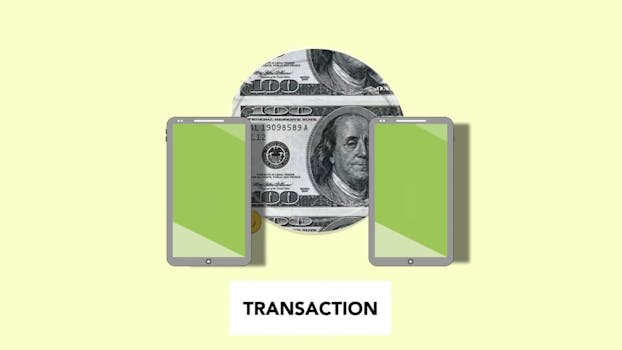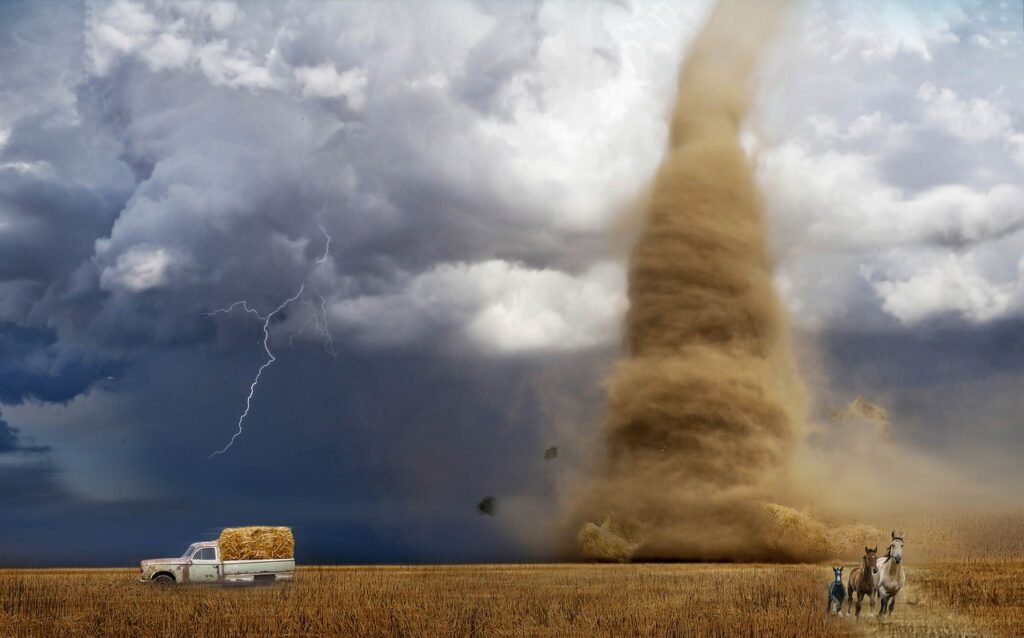Index
- Introduction to the Metaverse: A New Digital World
- The Basics of Earning in the Metaverse: Opportunities and Challenges
- Creating and Selling Digital Assets: NFTs and Virtual Items
- Virtual Real Estate Investments in the Metaverse: Land and Properties
- Work and Services in the Metaverse: Emerging New Professions
- Marketing and Advertising in the Virtual World: Strategies and Techniques
- Events and Entertainment in the Metaverse: Monetizing Experiences
- Education and Training: Earning Opportunities for Teachers and Trainers
- Development of Applications and Games for the Metaverse
- Cryptocurrencies and Tokens: The Role of Decentralized Finance
- Strategies for Creating Passive Income in the Metaverse
- Risks and Ethical Considerations: The Other Side of the Coin
- Conclusion: The Future of Earning in the Metaverse
Introduction to the Metaverse: A New Digital World

What is the Metaverse?
The Metaverse is a revolutionary concept rapidly gaining traction in the digital world. It is an immersive, persistent, and interconnected virtual universe where users can interact with each other and their surroundings through personalized avatars. This new digital world combines elements of virtual reality (VR), augmented reality (AR), and blockchain technologies to create a unique and engaging experience.
Main Features of the Metaverse
The Metaverse is characterized by several key features:
- Persistence: The virtual world continues to exist and evolve even when users are not connected.
- Interoperability: Users can transfer virtual objects and identities across different Metaverse platforms.
- Virtual Economy: An economic system based on cryptocurrencies and NFTs (Non-Fungible Tokens) that enables transactions and digital ownership.
- Sociality: It offers new forms of social interaction and collaboration in virtual environments.
The Impact of the Metaverse on Society and Economy
The Metaverse is not just a futuristic concept but is already influencing various sectors:
- Work: New opportunities for remote work and virtual collaboration.
- Entertainment: Immersive experiences for concerts, movies, and games.
- Education: Interactive and globally accessible learning environments.
- Commerce: New models of e-commerce and experiential marketing.
These innovations are creating new opportunities for earning and investment, transforming the way we interact with technology and each other.
The Basics of Earning in the Metaverse: Opportunities and Challenges

Exploring Earning Opportunities in the Metaverse
The Metaverse offers a wide range of opportunities to generate income by leveraging its unique features and growing virtual economy. Here are some key areas where you can earn:
- Creating and Selling Digital Assets: Develop and market virtual objects, avatar clothing, digital artworks, and other non-fungible goods (NFTs).
- Developing Immersive Experiences: Design and build virtual environments, games, or interactive experiences within the Metaverse.
- Professional Virtual Services: Offer consulting, training, or creative services within virtual spaces.
- Virtual Real Estate Investments: Buy, develop, and resell virtual land or properties in the Metaverse.
Challenges and Considerations for Earning in the Metaverse
Despite numerous opportunities, there are also significant challenges to navigate:
- Market Volatility: The value of digital assets can fluctuate rapidly, requiring careful risk management.
- High Competition: With increasing interest in the Metaverse, competition in many sectors is becoming intense.
- Technical Skills: Many opportunities require specific skills in programming, 3D design, or blockchain technology.
- Regulatory Uncertainty: The legal and tax framework for activities in the Metaverse is still evolving, creating potential risks.
Strategies to Maximize Earning Potential
To succeed in the Metaverse, it is crucial to adopt targeted strategies:
- Diversification: Do not focus on a single source of income but explore various opportunities.
- Continuous Updating: Stay up-to-date with the latest trends and technologies in the Metaverse.
- Networking: Build a network of contacts and collaborations within the Metaverse community.
- Innovation: Constantly seek new ideas and unique approaches to stand out from the competition.
Understanding these basics is essential for anyone looking to leverage the earning potential offered by the Metaverse, balancing opportunities and risks in this new and exciting digital space.
Creating and Selling Digital Assets: NFTs and Virtual Items

The NFT Market in the Metaverse
NFTs (Non-Fungible Tokens) represent one of the most exciting opportunities to earn in the Metaverse. These unique and non-interchangeable tokens are used to certify the ownership and authenticity of digital assets. In the context of the Metaverse, NFTs can represent a wide range of virtual goods, including:
- Digital Artworks: Unique illustrations, animations, and 3D sculptures.
- Virtual Land and Properties: Plots of land or buildings within virtual worlds.
- Collectibles: Digital cards, figurines, or other collectible items.
- Avatar Accessories: Clothing, jewelry, and other items to personalize one’s avatar.
Creating and selling NFTs offers artists, designers, and digital entrepreneurs the ability to monetize their creations innovatively, benefiting from digital scarcity and blockchain traceability.
Strategies for Success in Creating Virtual Items
To succeed in the virtual items market in the Metaverse, it is essential to adopt targeted strategies:
- Originality and Quality: Create unique, high-quality items that stand out from the crowd.
- Market Understanding: Analyze trends and preferences of Metaverse users.
- Marketing and Visibility: Effectively promote your assets through social media and specialized platforms.
- Collaborations: Participate in collaborative projects or limited collections to increase visibility.
- Strategic Pricing: Set competitive prices that reflect the unique value of your creations.
Platforms
and Tools for Creating and Selling Digital Assets
To enter the digital assets market in the Metaverse, it is important to know the main platforms and tools available:
- OpenSea: The largest marketplace for NFTs, ideal for a wide range of digital assets.
- Decentraland: A platform specializing in virtual land and objects for its virtual world.
- Rarible: A marketplace that allows artists to easily create and sell NFTs.
- Blender: Free software for creating 3D models and animations.
- Adobe Creative Suite: A suite of professional tools for creating high-quality digital content.
Choosing the right platform and tools will depend on the type of asset you intend to create and the target audience in the Metaverse.
Virtual Real Estate Investments in the Metaverse: Land and Properties

The Virtual Real Estate Market: A New Frontier
The real estate market in the Metaverse is emerging as one of the most interesting and innovative investment opportunities of the digital era. Virtual land and properties are gaining real value, offering investors the chance to buy, develop, and resell digital spaces in expanding virtual worlds. Platforms like Decentraland, The Sandbox, and Cryptovoxels have become true virtual real estate markets where users can purchase land plots in the form of NFTs (Non-Fungible Tokens).
These investments offer several earning opportunities:
- Value Appreciation: As the Metaverse grows in popularity, the value of virtual properties tends to increase.
- Rent and Leasing: Investors can rent virtual spaces to companies or individuals for events, shops, or virtual offices.
- Development and Resale: It is possible to buy raw land, develop it with unique structures or experiences, and resell it at a higher price.
Investment Strategies in the Virtual Real Estate Market
To maximize earning potential in virtual real estate investments in the Metaverse, it is essential to adopt targeted strategies:
- Research and Due Diligence: Carefully study the different platforms and their growth prospects before investing.
- Diversification: Distribute investments across different platforms and types of properties to mitigate risks.
- Strategic Location: As in the real world, location is crucial. Look for land near high-traffic areas or points of interest.
- Creative Development: Invest in creating unique experiences or attractive structures to increase property value.
- Networking: Build relationships with other investors and developers in the Metaverse to seize new opportunities.
Risks and Considerations in Virtual Real Estate Investments
Despite the potential, virtual real estate investments in the Metaverse also involve significant risks:
- Market Volatility: The value of virtual properties can fluctuate rapidly based on trends and Metaverse adoption.
- Regulatory Uncertainty: The legal framework for investing in digital assets is still evolving and could impact the market.
- Dependence on Technology: The value of investments is closely tied to the success and longevity of Metaverse platforms.
- Liquidity: The virtual property market may not always be liquid, making it difficult to quickly sell assets.
Approaching this type of investment cautiously, considering your risk profile, and conducting thorough research before committing significant resources is crucial.
Work and Services in the Metaverse: Emerging New Professions
The Work Landscape in the Metaverse
The Metaverse is revolutionizing the world of work, creating new professional opportunities and transforming existing ones. This immersive virtual environment offers fertile ground for the emergence of innovative professions that combine technological skills, creativity, and social abilities. Companies are beginning to recognize the Metaverse’s potential as a workspace, collaboration hub, and service delivery platform, opening doors to a wide range of new careers.
Some of the emerging professions in the Metaverse include:
- Virtual Architects: Design and build 3D environments, buildings, and landscapes in the Metaverse.
- Digital Security Experts: Protect virtual assets and ensure user privacy.
- Immersive Experience Consultants: Create and optimize engaging experiences for users and clients.
- Metaverse Economists: Analyze and manage virtual economies and cryptocurrencies.
Professional Services in the Virtual World
The Metaverse not only creates new professions but also offers new ways to provide traditional services in a virtual context:
- Education and Training: Interactive courses and workshops in immersive virtual environments.
- Business Consulting: Meetings and presentations in customized virtual meeting rooms.
- Healthcare: Medical consultations and therapies in private and secure virtual spaces.
- Entertainment: Concerts, shows, and large-scale events in virtual venues.
These services benefit from the immersiveness and accessibility offered by the Metaverse, overcoming geographical barriers and providing unique experiences.
Key Skills for Success in Metaverse Work
To thrive professionally in the Metaverse, developing a specific set of skills is essential:
- Advanced Digital Literacy: Familiarity with VR/AR platforms, blockchain, and emerging technologies.
- 3D Design and Modeling: Ability to create and manipulate three-dimensional objects and environments.
- Programming and Software Development: Knowledge of relevant programming languages for the Metaverse.
- Virtual Social Skills: Effective communication and collaboration abilities in digital environments.
- Adaptability and Continuous Learning: Flexibility in adapting to rapidly evolving technologies and trends.
Investing in developing these skills can open numerous career opportunities in this new and dynamic digital environment, positioning professionals at the forefront of the Metaverse revolution.
Marketing and Advertising in the Virtual World: Strategies and Techniques

New Frontiers of Digital Marketing in the Metaverse
The Metaverse is revolutionizing how companies approach marketing and advertising. This new virtual environment offers unique opportunities to engage consumers in innovative and immersive ways. Marketing strategies in the Metaverse rely on interactive experiences, advanced personalization, and real-time engagement. Some of the main trends include:
- Branded Virtual Events: Organizing concerts, fairs, and product launches in customized virtual environments.
- Immersive Product Placement: Integrating products and brands into virtual experiences naturally and engagingly.
- Virtual Influencer Marketing: Collaborating with avatar influencers and digital personalities to promote products and services.
- Dynamic and Interactive Advertising: Creating ads that react to user actions and adapt to the virtual context.
Engagement and Loyalty Techniques in the Metaverse
To maximize the effectiveness of marketing campaigns in the Metaverse, companies are adopting innovative techniques:
- Gamification: Integrating game elements into marketing strategies to increase engagement.
- Immersive Storytelling: Creating interactive narratives that immerse consumers in the brand’s world.
- Community Co-Creation: Involving users in creating content and virtual products.
- Augmented Reality (AR) and Virtual Reality (VR): Using immersive technologies to offer unique product experiences.
These techniques not only increase engagement but also create a deeper connection between the brand and consumers in the virtual world.
Challenges and Ethical Considerations in Metaverse Marketing
Despite numerous opportunities, marketing in the Metaverse presents significant challenges:
- Privacy and Data Protection: Responsible management of users’ personal information in virtual environments.
- Transparency in Advertising Practices: The need for clarity in distinguishing between organic and sponsored content.
- Accessibility and Inclusivity: Ensuring that marketing experiences are accessible to a diverse audience.
- Measuring Effectiveness:Developing new metrics and KPIs to assess the success of campaigns in the Metaverse.
Companies must carefully navigate these challenges to build ethical and effective marketing strategies in the new digital landscape of the Metaverse.
Events and Entertainment in the Metaverse: Monetizing Experiences

New Frontiers of Virtual Entertainment
The Metaverse is redefining the concept of entertainment, offering immersive and interactive experiences that go beyond the boundaries of the physical world. This new digital dimension opens up endless possibilities for content creators, artists, and entrepreneurs to monetize their ideas in innovative ways. Events in the Metaverse can take various forms, including:
- Virtual Concerts: Musical performances in customized 3D environments with spectacular visual effects.
- Interactive Art Exhibitions: Virtual galleries where artists can showcase and sell digital works (NFTs).
- Film Festivals: Film screenings in virtual theaters with unique viewing experiences.
- Conferences and Workshops: Educational and professional events in customizable virtual spaces.
The key to success in this sector is the ability to create unique experiences that fully leverage the potential of the virtual world.
Monetization Strategies for Events in the Metaverse
To turn virtual events into earning opportunities, effective monetization strategies are essential:
- Virtual Ticketing: Selling unique access tokens for events, potentially in the form of collectible NFTs.
- Digital Merchandising: Creating and selling exclusive virtual items related to the event (avatar clothing, accessories, etc.).
- Sponsorships and Product Placement: Integrating brands and products within the virtual event environment.
- VIP Experiences: Offering premium packages with access to exclusive areas or special interactions with artists.
- On-Demand Content: The possibility of reselling recordings or highlights of events after their conclusion.
Technologies and Platforms for Events in the Metaverse
To organize successful events in the Metaverse, it is crucial to choose the right technologies and platforms:
- Decentraland: An open-source platform for creating large-scale virtual events.
- Fortnite: In addition to being a game, it offers an environment for impactful concerts and cultural events.
- VRChat: Ideal for social and interactive events on a small to medium scale.
- Sansar: A platform specializing in immersive musical and entertainment experiences.
The choice of platform will depend on the nature of the event, the target audience, and the required functionalities to provide an optimal experience.
Challenges and Future Considerations
Despite the immense potential, organizing events in the Metaverse presents challenges:
- Technological Accessibility: Ensuring that the audience has access to the necessary technologies to fully participate.
- Digital Rights Management: Protecting intellectual property and content in a virtual environment that is easily replicable.
- Security and Privacy: Implementing measures to protect participants’ data and identities.
- Scalability: Managing large numbers of simultaneous participants without compromising the quality of the experience.
Addressing these challenges will be crucial for the future development and economic sustainability of events in the Metaverse, paving the way for new forms of entertainment and monetization in the digital era.
Education and Training: Earning Opportunities for Teachers and Trainers

The New Paradigm of Learning in the Metaverse
The Metaverse is revolutionizing the education and training sector, offering unique opportunities for teachers and trainers to monetize their skills in innovative ways. This immersive virtual environment allows the creation of interactive and engaging learning experiences, overcoming the limitations of traditional teaching. In the Metaverse, education becomes:
- Immersive: Students can explore 3D environments related to their studies.
- Interactive: Simulations and virtual labs offer unique practical experiences.
- Global: Geographical distance is no longer a barrier, allowing international collaborations.
- Personalized: Artificial intelligence can tailor learning paths to individual needs.
Monetization Strategies for Educators in the Metaverse
To make the most of these opportunities, teachers and trainers can adopt various monetization strategies:
- Virtual Courses and Workshops: Creating interactive educational programs with paid access.
- Personalized Tutoring: Offering one-to-one sessions in customized virtual environments.
- Creation of Educational Content: Developing and selling digital teaching resources and immersive experiences.
- Educational Consulting: Assisting institutions and companies in implementing training programs in the Metaverse.
- Learning Platforms: Creating specialized educational platforms within the Metaverse.
Technologies and Tools for Education in the Metaverse
To successfully implement educational programs in the Metaverse, it is essential to familiarize yourself with the available technologies and tools:
- Engage VR: A platform specialized in creating interactive virtual classrooms.
- Virbela: Offers complete virtual environments for university campuses and corporate training.
- Mozilla Hubs: An open-source tool for creating collaborative learning spaces.
- AltspaceVR: A platform for educational events and large-scale virtual conferences.
The choice of platform will depend on the specific needs of the course, the target audience, and the desired level of interactivity.
Challenges and Considerations for Education in the Metaverse
Despite numerous opportunities, education in the Metaverse presents significant challenges:
- Technological Accessibility: Ensuring that all students have access to the necessary technologies.
- Training Educators: The need to update teachers’ skills for the virtual environment.
- Assessment of Learning: Developing new methods to evaluate the effectiveness of learning in the Metaverse.
- Security and Privacy: Protecting students’ data and creating safe learning environments.
Addressing these challenges will be crucial to fully exploiting the potential of education in the Metaverse and creating sustainable earning opportunities for teachers and trainers in this new digital ecosystem.
Development of Applications and Games for the Metaverse
The Growing Market of Applications in the Metaverse
Developing applications and games for the Metaverse represents one of the most promising opportunities in the emerging digital landscape. This rapidly expanding sector offers developers and entrepreneurs the chance to create innovative and engaging experiences for a global audience. The market for applications in the Metaverse includes:
- Immersive Games: VR and AR gaming experiences that fully exploit the Metaverse’s capabilities.
- Social Applications: Platforms for social interaction and collaboration in virtual environments.
- Productivity Tools: Applications for remote work and team collaboration in the Metaverse.
- Educational Experiences: Interactive applications for learning and training in virtual environments.
Technologies and Key Skills for Development
To succeed in developing applications for the Metaverse, it is essential to master several technologies and skills:
- 3D Game Engines: Unity and Unreal Engine are fundamental tools for creating virtual environments.
- VR/AR Programming: Knowledge of languages like C#, C++, and JavaScript for developing immersive applications.
- 3D Modeling: The ability to create high-quality 3D assets using software like Blender or Maya.
- Blockchain and Smart Contracts: Skills to integrate decentralized economy elements into applications.
- UI/UX for Virtual Environments: Designing intuitive and engaging user interfaces for VR/AR experiences.
Monetization Strategies for Developers
Developers can adopt various strategies
to monetize their creations in the Metaverse:
- Freemium Model: Offering the application for free with premium features available for purchase.
- Microtransactions: Selling virtual items, upgrades, or extra content within the application.
- Subscriptions: Continuous access to exclusive content and features through monthly or annual subscriptions.
- In-App Advertising: Integrating non-intrusive ads into the user experience.
- Commissioned Development: Creating custom applications for companies or organizations in the Metaverse.
The choice of monetization strategy will depend on the type of application, the target audience, and market trends in the Metaverse.
Cryptocurrencies and Tokens: The Role of Decentralized Finance
The Financial Ecosystem of the Metaverse
Cryptocurrencies and tokens are emerging as the backbone of the Metaverse economy, offering a decentralized financial system that facilitates secure and transparent transactions in these virtual worlds. This new economic paradigm is based on:
- Native Cryptocurrencies: Digital coins specific to each Metaverse platform (e.g., MANA for Decentraland, SAND for The Sandbox).
- Non-Fungible Tokens (NFTs): Unique representations of digital ownership used for virtual assets like land, items, and artworks.
- Stablecoins: Cryptocurrencies pegged to fiat currencies that offer stability in Metaverse transactions.
- Governance Tokens: Used for decentralized decision-making processes within Metaverse communities.
This financial ecosystem allows users to buy, sell, and trade virtual goods, participate in digital economies, and invest in Metaverse projects.
DeFi in the Metaverse: Opportunities and Innovations
Decentralized Finance (DeFi) is playing a crucial role in the evolution of the Metaverse economy, introducing innovative concepts:
- Collateralized Loans: Using virtual assets as collateral to obtain cryptocurrency loans.
- Yield Farming: Generating returns by providing liquidity in Metaverse exchange pools.
- Virtual DEX: Decentralized exchanges for trading Metaverse-specific assets.
- Metaverse DAOs: Decentralized Autonomous Organizations governing aspects of the virtual economy.
- Fractional NFTs: Dividing high-value NFTs into smaller tokens to facilitate investment and shared ownership.
These innovations create new earning and investment opportunities within the Metaverse, democratizing access to financial services in these virtual worlds.
Challenges and Considerations for Investors
Despite numerous opportunities, investing in cryptocurrencies and tokens in the Metaverse involves significant risks:
- Market Volatility: The prices of digital assets can experience extreme fluctuations over short periods.
- Security Risks: The need to adequately protect digital assets from hacking and fraud.
- Regulatory Uncertainty: The regulatory framework for cryptocurrencies and Metaverse assets is still evolving.
- Liquidity: Some Metaverse-specific assets may have limited liquidity.
- Technological Complexity: Understanding the underlying technologies requires a significant learning curve.
Investors must conduct thorough due diligence, diversify their investments, and stay updated on market trends to navigate the emerging Metaverse economy successfully.
Strategies for Creating Passive Income in the Metaverse

Virtual Real Estate Investments
One of the most promising strategies for generating passive income in the Metaverse is virtual real estate investment. This form of investment involves purchasing land or digital properties within Metaverse platforms like Decentraland, The Sandbox, or Cryptovoxels. Investors can:
- Rent Virtual Spaces: Lease land or virtual buildings to companies or individuals for events, shops, or offices.
- Develop and Resell: Purchase raw land, develop it with unique structures or experiences, and resell it at a higher price.
- Create Paid Attractions: Build interactive experiences or entertainment venues that generate income through virtual admission tickets.
The key to success in this area is strategic location choice and creative development of spaces to maximize their appeal and value.
Creating and Selling Digital Assets
Another effective strategy for generating passive income in the Metaverse is creating and selling digital assets, particularly in the form of NFTs (Non-Fungible Tokens). This strategy includes:
- Designing Virtual Objects: Creating clothing, accessories, or furniture for avatars that can be sold in dedicated marketplaces.
- Digital Art: Producing unique or limited edition digital artworks to sell as NFTs.
- Developing Interactive Experiences: Creating games, environments, or experiences that generate continuous royalties.
The advantage of this strategy is that once created, these assets can continue to generate income through direct sales or royalties on secondary sales.
Staking and Yield Farming in the Metaverse
Metaverse platforms often have their native cryptocurrencies and governance tokens. Actively participating in the economy of these platforms can generate passive income through:
- Staking: Locking your tokens to support the network and receiving rewards in return.
- Yield Farming: Providing liquidity to decentralized exchange pools and earning a percentage of trading fees.
- Participatory Governance: Using governance tokens to vote on proposals and receive rewards for active participation.
These strategies require a deep understanding of the economic mechanisms of individual platforms and involve risks related to token price volatility.
Considerations and Risks
While the Metaverse offers exciting opportunities for generating passive income, it is important to consider:
- Market Volatility: The value of digital assets can fluctuate significantly.
- Technological Evolution: Metaverse platforms are constantly evolving, requiring continuous updates to strategies.
- Liquidity: Some assets or tokens may have limited liquidity, making it difficult to convert to fiat currency.
- Legal and Tax Aspects: The regulation of economic activities in the Metaverse is still being defined in many countries.
To maximize earning potential and minimize risks, it is advisable to diversify investments across different strategies and platforms, keeping up to date with trends and innovations in the sector.
Risks and Ethical Considerations: The Other Side of the Coin

Security and Privacy Challenges in the Metaverse
While the Metaverse offers numerous opportunities, it also presents significant security and privacy challenges. Users and companies must be aware of:
- Personal Data Protection: The Metaverse collects an unprecedented amount of personal data, including movements, interactions, and even facial expressions.
- Digital Identity: The risk of identity theft or the creation of fake avatars can lead to fraud and abuse.
- Cybersecurity: Hacker attacks could compromise valuable digital assets or sensitive information.
- Technological Dependence: Prolonged immersion in the Metaverse could lead to addiction and social isolation problems.
Developing solid security practices and ethical frameworks is essential to protect users in these new digital environments.
Social and Ethical Implications
The advent of the Metaverse raises important ethical and social questions that require careful consideration:
- Digital Inequality: Access to the Metaverse could create new forms of inequality between those who can afford the necessary technologies and those who cannot.
- Psychological Impact: Prolonged exposure to virtual realities can influence users’ perception of reality and mental well-being.
- Intellectual Property Issues: The creation and sharing of content in the Metaverse raise new challenges in terms of copyright and ownership.
- Regulation and Governance: The need to establish norms and rules to govern these new digital spaces fairly and securely.
Future Prospects and the Need for Regulation
To address these challenges and ensure a sustainable and
ethical future for the Metaverse, concrete actions are needed:
- Development of Ethical Standards: Creating shared guidelines for the responsible development and use of Metaverse technologies.
- Digital Education: Promoting awareness and the necessary skills to navigate the Metaverse safely.
- International Collaboration: Cooperation between governments, technology companies, and civil society to address the global challenges posed by the Metaverse.
- Continuous Research: Investing in research to better understand the long-term impacts of the Metaverse on society and individuals.
Proactively addressing these challenges is essential to realizing the full potential of the Metaverse as a space for innovation, creativity, and human connection, while ensuring the protection of users’ rights and well-being.
Conclusion: The Future of Earning in the Metaverse
The Economic Potential of the Metaverse
The Metaverse is rapidly establishing itself as a new economic frontier, offering innovative and diversified earning opportunities. This ever-expanding virtual universe promises to revolutionize how we work, interact, and create value. The earning prospects in the Metaverse are vast and include:
- Creating Digital Content: Artists, designers, and developers can monetize their creations through NFTs and virtual assets.
- Virtual Services Economy: Professionals from various sectors can offer consulting, training, and services in immersive environments.
- Virtual Real Estate Investments: Buying, developing, and renting digital properties are emerging as profitable sectors.
- Decentralized Finance (DeFi): New forms of investment and financial management based on blockchain and cryptocurrencies.
These opportunities attract investors, entrepreneurs, and creatives, fueling unprecedented economic growth in this new digital space.
Challenges and Necessary Adaptations
Despite the potential, success in the Metaverse requires significant adaptations:
- Advanced Digital Skills: Mastery of technologies such as VR, AR, blockchain, and 3D development will become essential.
- Flexibility and Continuous Innovation: The Metaverse’s rapid evolution requires constant updating and adaptation of business strategies.
- Risk Awareness: Market volatility and regulatory uncertainty require careful risk management.
- Ethics and Social Responsibility: Developing ethical and sustainable practices will be crucial for long-term success in the Metaverse.
The Future of Work in the Metaverse
The Metaverse is redefining the very concept of work, offering new ways of collaboration and productivity:
- Virtual Offices: Immersive workspaces that overcome geographical barriers.
- Enhanced Gig Economy: Platforms for freelancers and professionals offering services in virtual environments.
- Training and Professional Development: Immersive learning programs and advanced simulations for field training.
- New Professions: The emergence of specialized roles such as virtual architects, Metaverse economists, and digital experience curators.
These transformations promise to create a more flexible, inclusive, and innovative work ecosystem, opening new paths for professional fulfillment and earning.
In conclusion, the Metaverse offers an unprecedented landscape of opportunities for those ready to embrace innovation and adapt to a new economic paradigm. While the challenges are significant, the potential for growth and transformation is immense. The future of earning in the Metaverse belongs to those who successfully navigate this new digital territory, combining creativity, technical skills, and entrepreneurial vision.




